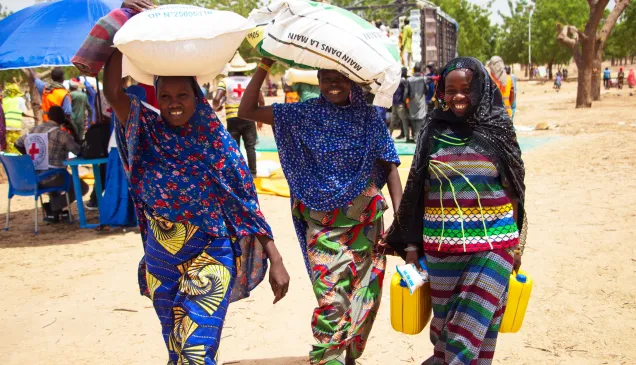Speech by ICRC president: A commitment to address forced displacement
Speech given by Peter Maurer, President of the International Committee of the Red Cross, at the World Humanitarian Summit in Istanbul, Turkey.
Excellencies,
Ladies and gentlemen,
We have heard the figures, the dilemmas, the concerns and commitments.
Let me tell you about another side of the dilemmas. A few weeks ago, I was somewhere in rural northern Afghanistan. You have to imagine the dark green and brown mountains, the isolation, this feeling you get when you drive for hours without seeing a single soul. There are no electric wires disrupting the countryside, no cities, certainly no 4G.
In one of the remote villages I talked to some village elders. They told me about their fears: that fighting would once more come to their village, that their families would be harmed. They told me of their problems: that there are no jobs for them, no schools for their children. They told me how extended families gather together to decide who will leave, and where to, to earn money abroad, for the whole family. Economic hardship is one of the many indirect effects of war.
One day earlier, in Jalalabad, I had met some people who had been displaced, multiple times, for over twenty years, always inside Afghanistan, due to fighting and insecurity. Twenty years, but they will not give up on the place they call home.
The reality is that nobody – nobody – leaves their home, their family, their entire life behind, on a whim. People flee for a reason and unless these reasons disappear, people will continue to flee.
This is why the ICRC works in the midst of countries at war: because as long as the bare essentials for dignified life are available – hospitals, schools, jobs, food, water, shelter – most people will prefer to stay in the place they call home.
That's why cutting assistance for the places of origin of displacement, to finance refugee welcome services in countries of destination will not work. The less we help in conflict zones, the more people will come.
It's why aggressive rhetoric does not deter people from crossing borders – although refugees are a minority among all those who are forcibly displaced. We all know that the vast majority of people seek safety in their own countries.
Vulnerabilities and rights must not be pitted against each other in the false belief that status means anything when it comes to the search of a dignified life.
Sticking people in camps is not a solution. We must give them the capacity and opportunity to lead normal lives as soon as possible. States must comply with their legal obligations and make resources available in line with the existing, dramatic needs. Governments should work with businesses to provide education, jobs and security, for refugees and locals. This is how we turn challenges into opportunities for individuals, societies and States.
Forced displacement is a disgrace. Greater respect for IHL and refugee law, the Geneva Conventions and the Kampala Convention in particular, will ease some of the worst suffering.
Respect for international humanitarian law, assistance where people are and according to their needs, protection for those who flee and pragmatic solutions for those who settle elsewhere – that is how we must address forced displacement.
At the core though, real success will depend on the ability to solve the underlying dynamics of conflict, and – ultimately – make peace.
Thank you.



